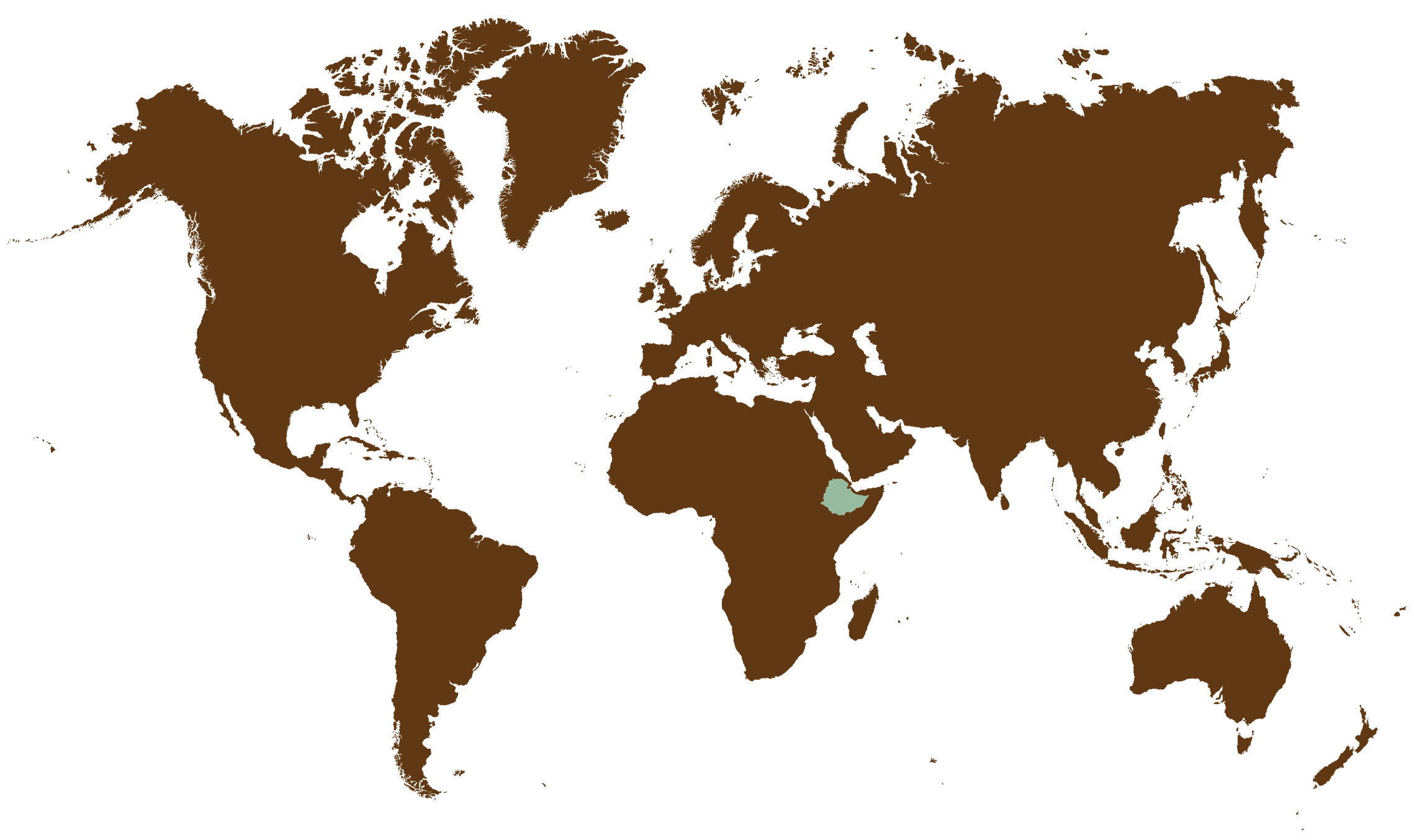Visiting Ethiopia
We Are There For You
Travel Tips
In this list you will find useful travel facts, background information and some suggestions that will not only help you prepare for your trip, but make your travel experience enjoyable from start to finish. Please note that things can change rapidly in Ethiopia, therefore some of the information herein may be subject to change.
Ethiopians are modest dressers and visitors should be sensitive about their dress when visiting places of worship. Shoes must always be removed before entering churches and mosques so we recommend bringing a pair of socks to wear when visiting sites such as Lalibela.

Ethiopia is a politically stable country. Its popular tourist destinations are safe and secure. Ethiopia is known to be still one of the safest places in Africa. Violent crimes are very rare. Tourist should be aware of pickpockets in crowded places like markets and its better not to showoff valuables and money. In some overland regions, it is recommended not to drive after dawn. In some remote areas, separatist movements have been active in the last years. Those regions are usually not easy to visit, or only with an official authorization.
Due to strict custom regulations, it may cause problems at the airport to carry more than the usual basic electronic devices , especially if they are new. Import Tax payment may be required. Souvenirs imitating historic artifacts have to be approved not original by the National Museum in Addis Ababa, if not they can be confiscated at the airport customs before leaving Ethiopia. Purchasing receipts have to be saved. You may want to consult your local Ethiopian Embassy if you want to bring high standard equipment. In many places, small fees are charged for photos taken of people, especially in the southern tribal areas of Ethiopia. Video fees can be very high in national parks and other guarded places.
This depends on the region you are travelling to. In the main highlands, the main rainy season occurs from June to the end of September, with a short rain period in March. In the Southern Omo Valley, the seasons are different with the main rains from March to June and shorter rains in November.
There are two season: dry season from October to May and rainy season from mid of June to mid of September. In Addis Ababa, the climate is almost the same along the year and the temperatures are around 70 degrees Fahrenheit/around 22 Celsius. In the Southern Omo Valley, the main rains are from March to June and shorter rains in November. The Somali region and the Danakil lowlands in the Afar region have a hot, dry climate producing semi-desert conditions.
We highly recommend to bring sunglasses and a hat for all areas of Ethiopia. Pack light clothes for the day time and a jacket or sweater for the chilly highland evenings and a good pair of walking shoes. Trekkers in the Simien and Bale Mountains will need jackets, warm clothes, thermals, waterproofs, and binoculars for viewing different animals. When entering the churches, the clothes have to be “respectful”, covering enough the body. Shoes must always be removed before entering churches and mosques – for travelling around sites like Lalibela with its many churches, airline socks are very useful.
You can get your visa from the Ethiopian Embassy or a tourist visa upon arrival at the Bole International Airport in Addis Ababa. (National of a few countries are allowed to receive their tourist visas on arrival) To get the most current visa information for business visa or multiple entry tourist visa, contact your local Ethiopian Embassy. If you enter Ethiopia by land, you should obtain your visa in advance from your local embassy.
Money can be exchanged in the airport, in hotels and banks. Exchange requires a passport and the receipts should be kept, as re-exchanging back into foreign currency is difficult otherwise. The Ethiopian currency is the Birr (“Silver” in Amharic). VISA and MASTERCARD are accepted at the major hotels. There are many ATM’s available in throughout Addis Ababa.
The time difference is +3 hours from Greenwich Mean Time (GMT)
We are currently in year 2016 in Ethiopia.
The year of the Ethiopian calendar contains 365 days to which is added every fourth year an extra day. Each year in this four-year period is dedicated to one of the four Evangelists who come in the following order: Mathew, Mark, Luke and John. The year of Luke is the Ethiopian Leap year and is the year which precedes the western leap year.
Each year is divided into 12 months of 30 days. The extra 5 days are placed at the end of the year and known as Pagumen. In the leap year the extra day is added to these five days making the Pagumen of this year a period of 6 days.
Names of months are as follows:
(1) Meskerem (September-October)
(2) Teqemt (October- November)
(3) Hedar (November- December)
(4) Tahsas (December- January)
(5) Ter (January- February)
(6) Yekatit (February- March)
(7) Megabit (March- April)
(8) Miyazia (April – May)
(9) Ginbot (May – June)
(10) Sene (June – July)
(11) Hamle (July-August)
(12) Nehase (August- September)
Ethiopia is a multi-ethnic state with a variety of over 80 different languages spoken in the country, with 200 dialects. The main three languages are Amharic, Tigrigna and Oromigna. English is also widely spoken.
The Ethiopian national food is a communal dish of Injera with stews of meat and vegetables. Injera is a spongy flatbread made of fermented Teff grain. Meat dishes mainly consist of lamb, chicken and beef. There are a number of vegetarian options in traditional Ethiopian cuisine. Pork is rarely consumed in Ethiopia as both the Orthodox and Muslim religion forbid it. Addis Ababa and many other cities boast of a wide variety of international restaurants.
After enjoying a traditional Ethiopian meal, it is customary to participate in a traditional coffee ceremony. Enjoy the unique flavor of Ethiopian organic coffee.
The possession of a valid Yellow Fever vaccination certificate is not mandatory. Immunization for Hepatitis A and B, Tetanus, Typhoid Diphtheria, Meningococcal, and Polio is recommended.
Malaria: in most of the sites malaria is not a problem because of the high elevation, e.g. Addis Ababa, Axum, Gondar and Lalibela. But it may occur in Bahir Dar at the end of the rainy season and after unseasonable rains. Lowland areas along the Awash River, the Omo Valley, Rift Valley and Gambella are subject to malaria outbreaks. Chloroquine resistant strains have been identified in most areas so you should consult your doctor about the prophylaxis.
Visitors should take a simple first aid kit, band aids, antiseptic cream, anti-histamine cream and/or tablets for insect bites, sunscreen (while temperatures are moderate, the sun is strong), anti-diarrhea tablets, mosquito repellent, broad spectrum antibiotics, and anti bacterial spray /cream.
Professional or high standard video equipment is difficult to be brought to Ethiopia. An official permission letter can be expensive. You may want to consult your local Ethiopian Embassy if you are bringing high standard equipment.
In many places, small fees are charged for photos taken of people, especially in the southern tribal areas of Ethiopia. Video fees can be very high in national parks and other guarded places.
January 3: Birth of Prophet Mohammed (Mauwlid)*
January 7: Ethiopian Christmas (Gena)
January 19: Ethiopian Epiphany (Timket)
March 2: Anniversary of the Victory of Adwa (1896)
April 10: Ethiopian Orthodox Good Friday
April 12: Ethiopian Orthodox Easter Sunday
May 1: International Labor Day
May 5: Patriots Victory Day
May 28: Fall of the Dergue Regime
July 18: Eid Al Fitir (Ramadan)*
September 12: Ethiopian New Year
September 24: Eid al Adha (Sacrifice)*
September 28th: The Finding of the True Cross (Meskel)
*These holidays are subject to the lunar calendar
Accommodation, Food, Traveling Around and Shopping.
Getting to Ethiopia
Bole International Airport in Addis Ababa provides international and domestic flights with Ethiopian Airlines operating globally from its hub. Visas are required except for some; travelers should carry valid passports and forms. Communication services are available in cities but limited elsewhere, while standard mail and DHL serve Addis Ababa. Addis Ababa offers international and local accommodation of varying quality, with the north generally higher; luxury options are limited but basic rooms can be found. Domestic flights and roads allow travel between towns and sites, though flights are faster; allowances and rentals vary but are expensive versus buses. Malaria risks differ by location so preventative measures are recommended, especially in the Omo Valley. Traditional cuisine and basic supplies can be purchased in most towns, while antiquities cannot be exported and tap water should be avoided but bottled water is available.










